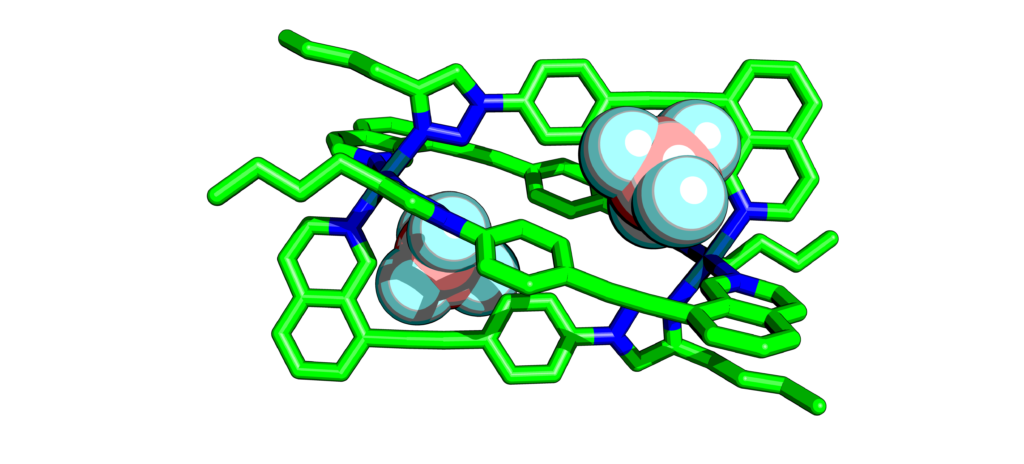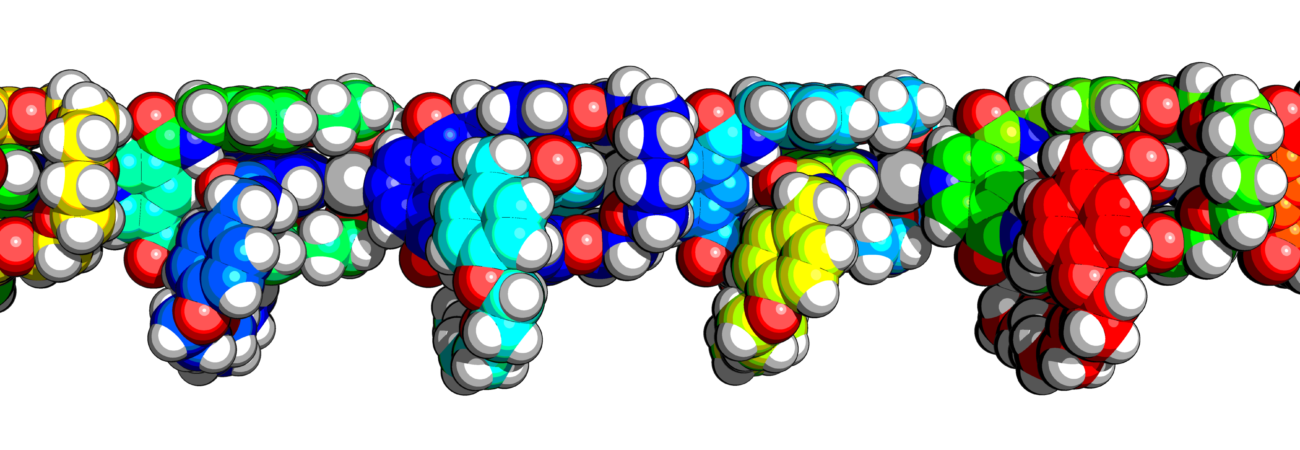We have three PhD studentships available to work on synthetic supramolecular chemistry in the Lewis Group to start in October 2023. Due to funding restrictions, only applications from those eligible for UK home fees will be considered.
In each of these projects training will be given in the areas of organic and inorganic chemical synthesis and various analytical techniques relevant to the work (NMR, mass spectrometry, single-crystal X-ray diffractometry).
Project #1 Shape-selective guest binding in metal-organic cages
Metal-organic cages (MOCs) are a class of supramolecular host molecules, assembled from metal ions and organic ligands. MOCs have been shown to bind a variety of small molecules, including reactive species, therapeutics and pollutants. Guest binding within MOCs, however, is known to be fairly promiscuous. Lower symmetry MOCs could provide a route to more selective guest binding through shape-matching with the host.
Our group has an ongoing interest in the development of design principles to target reduced symmetry MOCs. This project will focus on the fundamental development of low-symmetry MOCs, examining their host-guest chemistry, and investigating potential applications of such shape-selective interactions in molecular separations and catalysis.

Conformational control of Pd2L4 assemblies with unsymmetrical ligands
High-throughput computational evaluation of low symmetry Pd2L4 cages to aid in system design
Pseudo-heterolepticity in low-symmetry metal-organic cages
Project #2 Macrocyclic compounds as hosts for functional materials
Our group has an ongoing interest in the development of molecular capsules with the aim of using these for highly selective binding of guest molecules. In this project you will develop synthetic routes to novel macrocyclic compounds, examine their host-guest chemistry, and investigate potential applications arising from these interactions. We are particularly interested in the use of these systems in catalysis. Ultimately, to further the use of these macrocycles through immobilising and organising them, you will incorporate them into polymeric networks.
Conformational control of Pd2L4 assemblies with unsymmetrical ligands
Self-assembly of a porous metallo-[5]rotaxane
Pseudo-heterolepticity in low-symmetry metal-organic cages
Project #3 Mechanically interlocked molecules in functional polymeric materials
Mechanically interlocked molecules (MIMs) consist of two or more molecular components that are held together through mechanical entanglement rather than covalent bonds. Our group is interested in the effect that mechanical entanglement can have on functional groups, and also the properties of both discrete and polymeric systems that arise from the flexibility of mechanical bonds.
The dynamic nature of the mechanical bond has led to the incorporation of MIMs into soft matter such as gels (so-called “slide-ring gels”) and more rigid materials such as metal-organic frameworks. In this project you will develop new polymer materials that incorporate mechanically interlocked molecules as structural components and investigate the impact that these have on the physical and chemical properties of the polymers.

Self-templated synthesis of amide catenanes and formation of a catenane coordination polymer
